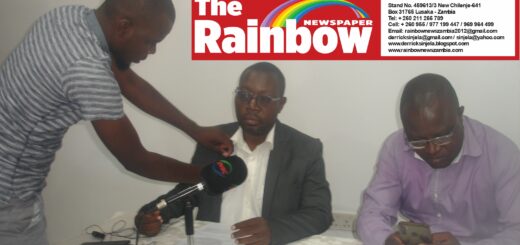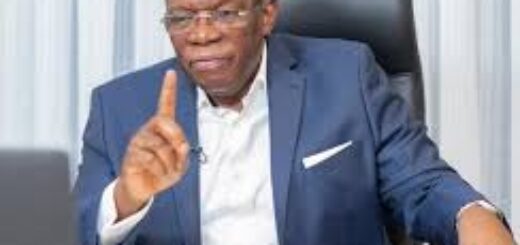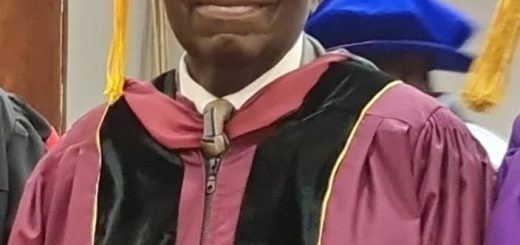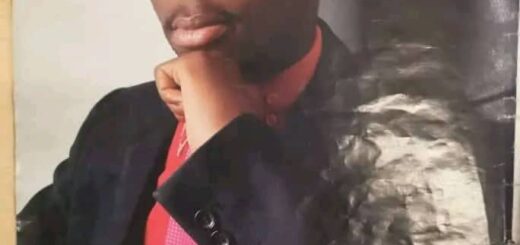The new special relationship: what does Putin want from Trump?
Notice: Undefined index: catFilterList in /home/zambi/public_html/wp-content/plugins/wp-likes/api.php on line 243

Trump in Moscow, at a Miss Universe competition, in 2009. Photograph: Kommersant Photo/Kommersant via Getty Images
The unlikely love-in between the president-elect and a former KGB agent who built a career on hating America has spooked many US allies. And it raises serious questions – from the fate of Edward Snowden to whether GCHQ’s secrets are safe
Putin and Trump Russian dolls … the start of a diplomatic thaw?
Putin and Trump Russian dolls … the start of a diplomatic thaw? Photograph: TASS / Barcroft Images
Luke Harding
Sunday 20 November 2016
It was, remarkably, their first phone call. Last week, on Monday, Donald Trump spoke to Vladimir Putin. According to the Kremlin, the conversation was warm. Putin congratulated the US president-elect on his sweeping victory. We don’t exactly know how they addressed each other, but you imagine it might have been “Vladimir” and “Donald”.
Both leaders agreed that US-Russian relations were “absolutely unsatisfactory”, as Moscow put it. Their two countries would now begin a new dialogue based on “equality, mutual respect and non-interference in the other’s internal affairs”. They would stay in touch and meet soon, the Kremlin said. Hours later, Russian jets resumed their pounding of Syria.
The scene at some point in spring or summer 2017 isn’t difficult to picture. You can see the cavalcade of oversized Chevrolet minivans sweeping into the Kremlin’s courtyard and parking up beneath a 15th-century cathedral with its glittering gold domes. The 45th president of the US will jump out and stride vigorously inside.
Trump: Putin is more of a leader of his country than Obama is for US – video

Donald Trump spoke to Vladimir Putin
Trump and his entourage will pass a painting showing Russian archers slaughtering their enemies in medieval battle. Next, he will enter an impressive palace room, its gilding as flamboyant and blinged-up as Trump Tower in Manhattan. There, a man of surprisingly small stature will receive the new US president. Cue warm smiles and a handshake. Putin makes a point of keeping everybody waiting, usually interminably, but you suspect that for Trump he will be bang on time. Trump’s election victory is something Putin has fervently wished for, but scarcely thought possible. On the day of the vote, state media told ordinary Russians that the election was fixed, Hillary Clinton’s victory pre-ordained.
Dictators around the world will delight in Trump’s victory
Brian Klaas
Read more
The nature of this first Trump-Putin meeting will shape international relations. It will either reassure – or further spook – a western security establishment already aghast at the way in which Trump has lavished praise on Russia’s unpredictable dictator-cum-president.
It’s easy to fathom what Putin might want from Trump. The Russian leader’s list of demands from America is long; his geopolitical grievances go back a long way. His relations with Barack Obama and George W Bush were torrid. (Probably the last happy moment was in 2001, when Bush said he had “got a sense of Putin’s soul”.)
Advertisement
First, the Kremlin wants the US to drop sanctions imposed in the wake of Putin’s 2014 annexation of Ukraine’s Crimean peninsula, seized by undercover Russian special forces. The sanctions, mirrored by the EU, were also punishment for Putin’s covert invasion of eastern Ukraine, in part done by regular troops, in part by “volunteers”.
The US Treasury department is not an institution known for humour. But those hit by sanctions and asset freezes have included Putin’s billionaire cronies, targeted because of their closeness to a “senior member of the Russian Federation”, as the Treasury dryly put it. It’s widely believed in Washington that their assets are Putin’s, running into the hundreds of billions of dollars.
Second, Putin will want Trump to recognise Russia’s ownership of Crimea – something no major state has done thus far. Annexing chunks of someone else’s territory seems a throwback to a darker age; indeed this is the first time Europe’s borders have been changed by force since 1945. Will Trump agree? Nobody quite knows, though it looks possible.
Ideally, Putin would like a new version of the 1945 Yalta treaty
And then there is Syria. Here, Putin will want the US to drop its demand that President Bashar al-Assad leaves power. Instead, it will seek Trump’s cooperation in an international war against “terrorists” – meaning anyone who opposes the Assad regime.
Lastly, there’s the matter of how the world is divided in the new post-liberal era. The Kremlin feels it is entitled to a sphere of influence. This encompasses the former republics of the Soviet Union, and eastern and central Europe. Moscow ideologues talk of “civilisational spheres” and “pluri-centricism” – code for Russia being a dominant world force on equal terms with the US.
Ideally, Putin would like a new version of the 1945 Yalta treaty, in which the US, Soviet Union and Britain carved up post-second-world-war Europe. But, you suspect, he would settle for a deal where Trump implicitly acknowledges that Russia has “legitimate interests” in its former backyard. Trump has already questioned the role of Nato; he said that the US will not defend countries that fail to contribute to Nato coffers.
No wonder, then, that the Baltic states are nervous, that EU foreign ministers met in emergency session following Trump’s victory, and that a new foreboding has descended among states bordering Russia. Their fear: that “sphere of influence” means subversion or attack or interference in elections in favour of pro-Kremlin candidates. Much of this is happening already.
According to Dmitry Peskov, Putin’s press spokesman, Trump and Putin share a “conceptual approach” to foreign policy. Their views are “phenomenally close”, Peskov said in New York. A senior Russian diplomat, meanwhile, admitted that the Russian government already knows Trump’s entourage – they had been in contact during the election campaign.
But what does Trump want from Putin? The question is an intriguing one. The answer is, so far, unknown. As deal-maker, tough-guy negotiator and seasoned bluffer, Trump would surely demand something in return from Russia. The reality is that Moscow has relatively little to offer the US, other than an improvement in the currently embittered tone of bilateral relations.
Edward Snowden … a pawn for Putin?
Facebook Twitter Pinterest
Edward Snowden … a pawn for Putin? Photograph: Uncredited/AP
One concession Putin might be prepared to make is on Edward Snowden, the whistleblower and fugitive NSA contractor, holed up in Moscow since 2013. Snowden’s stay of residence expires next summer. It’s possible to imagine the Kremlin announcing, with solemn regret, that Snowden has violated his residency terms and is now being extradited to the US.
Still, this scenario fails to explain Trump’s gushing public support for Putin. During the US election campaign, Putin was the only international figure whom Trump repeatedly praised. He hailed him as a “stronger leader” than Obama. And he incited Russia to hack Clinton. The Obama administration believes the Kremlin was behind the leak of Democratic National Committee emails. This act didn’t cause Hillary’s defeat but surely contributed to it.
For much of this year journalists have tried to discover what leverage, if any, Putin has over Trump. How to explain the candidate’s strange fealty to a former KGB agent whose career has been predicated on hating America? The obvious place to start was with Paul Manafort, Trump’s campaign manager until spring this year. Manafort’s previous client was Viktor Yanukovych, the venal former president of Ukraine who fled to Russia in 2014 after an anti-government uprising.
Paul Manafort … former Trump campaign manager has links with powerful oligarchs.
Facebook Twitter Pinterest
Paul Manafort … former Trump campaign manager has links with powerful oligarchs. Photograph: Chip Somodevilla/Getty Images
As well as advising Yanukovych to blow-dry his hair, and generally touching up his public image, Manafort developed links with powerful oligarchs. They included Oleg Deripaska and Dmitry Firtash, both of whom invested in Manafort’s business side-ventures. One of them involved New York real estate. I tried to interview both oligarchs, without success. It’s unclear how much Russian cash underpins Trump’s sprawling property portfolio.
Despite exhaustive inquiries, reporters have failed to answer what might be called the Francis Fukuyama question. Writing in the Financial Times, the historian wondered why it was that Trump had “never uttered a critical word about Putin”. Fukuyama asked if Putin had “hidden leverage”, “perhaps in the form of debts to Russian sources that keep his business empire afloat”.
Lurid theories have circulated about what compromising information Russia’s spy agencies may have on Trump
Again, no one knows. For months, lurid theories have circulated about what compromising information Russia’s spy agencies may have on Trump. The FSB – the successor agency to the KGB, once run by Putin – specialises in gathering kompromat, material that might be used for blackmail. The agency is adept at bugging, clandestine video surveillance and other covert tricks.
Trump’s last visit to Moscow was in November 2013. The occasion: the Miss Universe beauty pageant. Trump’s host was tycoon and Azeri-Russian property developer Aras Agalarov. (Putin was due to meet Trump but cancelled at the last minute, sending instead a decorative lacquered box and a friendly note, Agalarov says.) The event involved many beautiful women and an after-party in a Moscow nightclub.
I met Agalarov when I worked for the Guardian in Russia. He showed me round his latest development: an exclusive housing estate, built for the super-rich, in rustic greater Moscow. Agalarov was a charming companion. We drove in his British Land Rover. We went past mansions built in Scottish baronial style; his bodyguards followed behind us in a black Mercedes. It seems unlikely Agalarov would have sought to embarrass Trump.
Trump in Moscow, at a Miss Universe competition, in 2009.
Facebook Twitter Pinterest
Trump in Moscow, at a Miss Universe competition, in 2009. Photograph: Kommersant Photo/Kommersant via Getty Images
Still, Trump stayed in the five-star Ritz Carlton hotel during that Moscow trip and occupied the suite that had previously been used by Obama. The US media reported that the FSB may have videoed Trump inside the suite. There is no proof that any compromising video exists. But the FSB would certainly have been interested in this kind of stuff: this is, after all, what it does.

Donald Trump spoke to Vladimir Putin

SARAH PALIN STALKING Donald Trump AND Vladimir Putin
Trump’s next visit to Russia will be celebratory. Putin will lay on a lavish state dinner. There will be toasts. All the signs suggest the two men will quickly develop what the Germans call a Männerfreundschaft – close, blokey relations similar to that enjoyed by Putin with Gerhard Schröder and Silvio Berlusconi, sealed over a few lewd jokes, possibly with allusions to grabbing, and based not on principles but on mutual self-interest.
Where does this leave the rest of us? Earlier this month, Andrew Parker, the director general of MI5, talked to the Guardian, the first newspaper interview given by a serving MI5 chief in the organisation’s 107-year history. Parker’s message was stark. He warned of a growing covert threat from Russia, a state he bluntly described as “increasingly aggressive”.
According to Parker, the Kremlin is using its formidable powers to push its foreign policy abroad. Moscow’s tools include propaganda, espionage, subversion and cyber-attacks, he said. Meanwhile, there are more Russian agents in the UK than during the cold war. “Russia is at work across Europe and in the UK today. It is MI5’s job to get in the way of that,” Parker declared.
For much of the post-war era, ministers have talked fondly of Britain’s special relationship with Washington. It didn’t look very special last week. Trump called Theresa May after first ringing the leaders of 10 other countries including Egypt and Saudi Arabia; Nigel Farage now appears to be Trump’s de facto British emissary, much to Downing Street’s chagrin.
The one area where the two countries have genuinely special ties is in intelligence gathering. The Snowden files revealed the extent to which the NSA and GCHQ, its British eavesdropping twin, are connected. Liberals worry that Trump will use the US’s surveillance powers to crack down on dissent at home, and to settle scores with his political foes in Washington and the media.
For Parker, and others who work in the shadows, there will be a further troubling question. Just how closely are Trump’s spy agencies likely to cooperate with their Russian counterparts? Might a Trump administration share secrets, including Her Majesty’s secrets, with the FSB? Could Trump officials tip off the Russians about the UK’s own covert operations?
The ‘us and them’ divide worked for Putin and it will work for Trump
Leonid Ragozin
Read more
The spooks are well aware of what the Kremlin can do. In January, a public inquiry conducted by a retired judge, Sir Robert Owen, concluded that the FSB had sent two assassins to murder the Russian dissident Alexander Litvinenko. Their weapon: radioactive tea. The man who “probably approved” that 2006 London operation was Putin, Owen said. Trump defended Putin, telling Fox news: “Who knows who did it?”
For Putin, 2016 has been an annus mirabilis. In the past week, pro-Russian candidates have won elections in Moldova and Bulgaria. The EU has been weakened by crises, including Brexit. Rightwing populists are on the march. Angela Merkel, now seen by many as the leader of the free world, is badly weakened. Who would bet against Marine Le Pen, recipient of a Moscow loan, winning next May’s French presidential election?
The Kremlin’s only problem involves storytelling. Putin’s defining idea has long been anti-Americanism. Until Trump’s victory, many Russians believed they were already fighting the west, in proxy battlegrounds such as Syria and Ukraine, and with full-scale war just round the corner. Now Trump is president, the US will slip down the table of official enemies, having long occupied first place. Somewhere else will have to fill the gap.
For now, there is a thaw between Washington and Moscow, the first in 15 years. The Trump-Putin love-in may continue for some time. It’s equally possible that Putin might pocket whatever concessions Trump is prepared to make. And then go back to what comes naturally: hating America.


















